The world on the way to the First World War. Part of 3
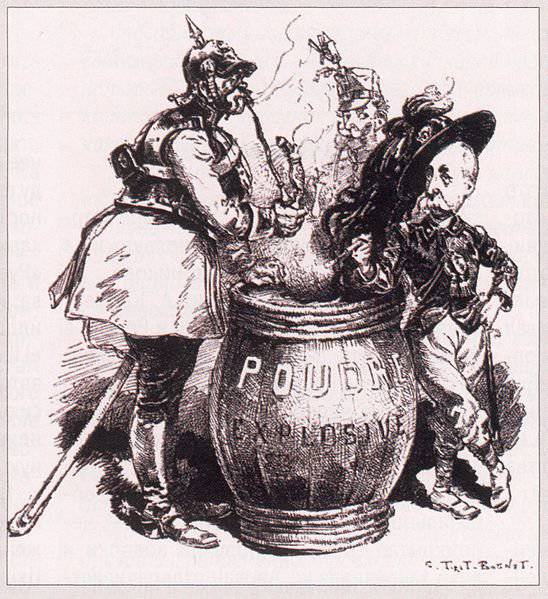
After the Berlin Congress 1878, when Russia took away the fruits of its victory, St. Petersburg again revised its policy. Therefore, when the terrorist killed Alexander II in 1881, Alexander III, who replaced him, began to pursue a “national policy”. The basis of his policy, he put the internal interests of the Russian Empire, its development. That is why he received the title of "Peacemaker". Russia seriously lost interest in Berlin, which actually betrayed Russia, did not support it, although it was part of the Union of Three Emperors.
In October, 1879, Berlin strengthened ties with Vienna, concluding with it the so-called The dual union, which became the basis of the Triple Alliance. Article 1-I of this treaty stated that if Russia attacks one of the countries, the other will come to its aid. Article 2 reported that in the event of an attack on one of the contracting powers of some other country, the other party undertakes to observe at least benevolent neutrality. If the attacking country receives the support of the Russian Empire, then the 1-i clause of the treaty will come into force.
Europe continued to seethe - Germany and Italy sought to get their share in the colonial division of the world. The old colonial powers were not going to share and continued to seize themselves. So, in the 1881-1883 years, the French took control of Tunisia. Italians because of this, they believed that this was their sphere of influence, almost started a war with France. Bismarck persuaded them not to start a war, Italy entered the orbit of Berlin's influence. 20 May 1882, the German, Austro-Hungarian empires and Italy signed a secret treaty on the Triple Alliance.
They pledged not to participate in alliances directed against one of the three countries, to coordinate issues of a political and economic nature. Berlin and Vienna have pledged to assist Italy in case it is attacked by France. The Italian state had to do the same in the event of an unprovoked attack by France on the German Empire. The Austro-Hungarians were assigned the role of a reserve in case of entry into the war on the side of the French of Russia. True, the Italians refused to fight England, if it attacks Germany and Austria-Hungary, they feared the mighty fleet the British. The Triple Alliance was renewed in 1887, 1891 and was automatically renewed in 1902, 1912.
Relations between Paris and London have escalated, both great powers have launched a race of colonial seizures. The British seized Egypt, Burma, causing irritation to the French, who had their own interests in these lands. The French themselves captured Madagascar, Tonkin. In this race, Berlin supported Paris, while he was busy with colonial affairs, less recalled the lost Alsace and Lorraine.
As a result, so that the war did not start, the Europeans decided to divide Africa "in a civilized way", naturally without asking the local population. A conference was convened in Berlin, which led the work from November 15 1884 to February 26 1885. As a result, at the suggestion of Bismarck, the General Act was adopted, which not only recognized the legitimacy of the colonial seizures that had already taken place, but for the first time legally secured the duties of European powers imposed on them by the presence of spheres of influence. In particular, the so-called. "The principle of effective occupation"who called on the powers of the West to extract natural raw materials in their colonies and put it into circulation in the world. And with the inability of the country to independently master the natural wealth of the colony, to allow other European powers and their cartels to operate on its territory.
This conference spurred the seizure of inland areas of Black Africa, and as a result, after a decade in 1895, the only sovereign countries in sub-Saharan Africa were only Liberia and Ethiopia. Berlin snatched Southwest Africa, Togo, Cameroon, East Africa, Northern New Guinea, and the Bismarck Archipelago in the Pacific Ocean in this race.
The rivalry of European predators was not limited only to colonial conquests; it went in the sphere of trade, finance, and industrial production. It is interesting that at that time the Germans mainly invested their money in the development of their industry, the British in their dominions and colonies, the French everywhere where it would bring profit, even to Germany, their potential enemy. In Germany, the percentage of profit was higher than in France in 2 times.
French map of Africa 1898 of the year. Pink color - French possession, yellow - British, dark green - German, gray-blue - Portuguese.
Germany after unification makes a powerful breakthrough in the development of industry Berlin threw money from the contribution received from France for its industrialization. Promoted industrial growth and the unification of the country. In addition, the ongoing arms race supported the development of large-scale industry. The German Empire developed so fast that it took second place in economic power, second only to the “workshop of the world” - Great Britain, and in some positions to the first. She led the development of new industries such as chemical, electrical engineering.
It should be noted that Russia also quickly developed its industry. The rise began under Alexander II. The liberation of the peasants from serfdom led to a considerable social stratification, the poor began to replenish the working class. Alexander III devoted a lot of time to the development of the industry of the empire: new enterprises were built, railway construction was actively going on (it was then that Trans-Siberian Railways began to be built), they mastered Central Asia, Siberia, the Far East, developed new deposits of natural resources. A Peasant Land Bank was established, which issued loans to peasants: from 1883 to 1915, he issued loans worth more than 1,35 billion rubles, and this helped more than 1 million peasant households to buy more than 15,9 million dessiatinas of land (this is more than modern Switzerland, Austria and Slovenia combined). The life of labor classes facilitated a number of activities: the abolition of the poll tax in 1886, in 1882, there was a restriction of factory work of minors and in 1885, night work of adolescents and women, etc.
During the reign of Alexander III, 114 of new warships were launched, including 17 battleships and 10 armored cruisers. As a result, the Russian military fleet, which experienced difficult times after the Crimean War, took the 3 place in the world after Great Britain and France among the world fleets - the total displacement of the fleet of the Russian Empire reached 300 thousand tons.
Through the efforts of two finance ministers - N.Kh. Bunge and I.A. Vyshnegradsky was stabilized financial system. Science, culture, education developed rapidly.
The emperor pursued a policy that he expressed in a famous expression that was said the day before his death to the son-heir to the throne: “Russia has no friends. They fear our vastness. We have only two reliable friends: the Russian army and the Russian fleet! ” Alexander did not allow himself to sleep more than 4 hours a day, giving most of his time to imperial affairs. The emperor was a man of gigantic, heroic power. He easily tore up card decks, broke horseshoes. Once, when Russia’s relations with Austria-Hungary, its ambassador, at a dinner at the palace of Alexander III, threatened that if Russia did not fulfill a number of Vienna’s demands, the Austrian government would be forced to put up against several of its army corps. Emperor Alexander III took a nickel silver fork from the dinner table, tied it in a knot and, throwing it on the plate to the Austrian ambassador, said disdainfully: “This is what I will do with your corps!”.
The power of Russia at that time shows another case from the time when foreign ambassadors arrived, Alexander at that time fished and said that when "the Russian sovereign is fishing, Europe can wait."
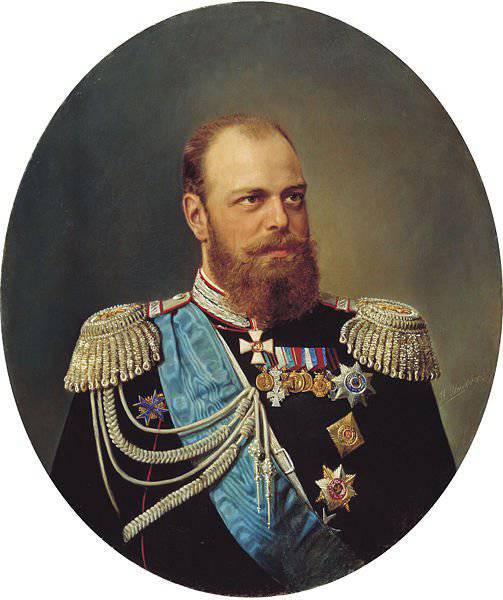
Alexander III Alexandrovich.
Russian relations with Germany
Despite the fact that Berlin developed a plan for war with Russia and France, Bismarck, who knew Russia very well, and Moltke Sr., understood that it was impossible to win Russia in the war. Bismarck pointed out that the main force of Russia is not in the size of the territory and the power of the army, but in the unity of the people, its cooperation. Moltke prepared a plan of war with Russia, which did not mention the invasion deep into its territory. He believed that only Poland and Russia would have to fight 7 for years. And after the “Pyrrhic victory”, to live in anticipation of a strike from Russia, which sooner or later will want revenge.
Therefore, Bismarck said that one should not fight with Russia in any way. You can intrigue against St. Petersburg, push Russia against other countries, but Germany should not fight with Russia.
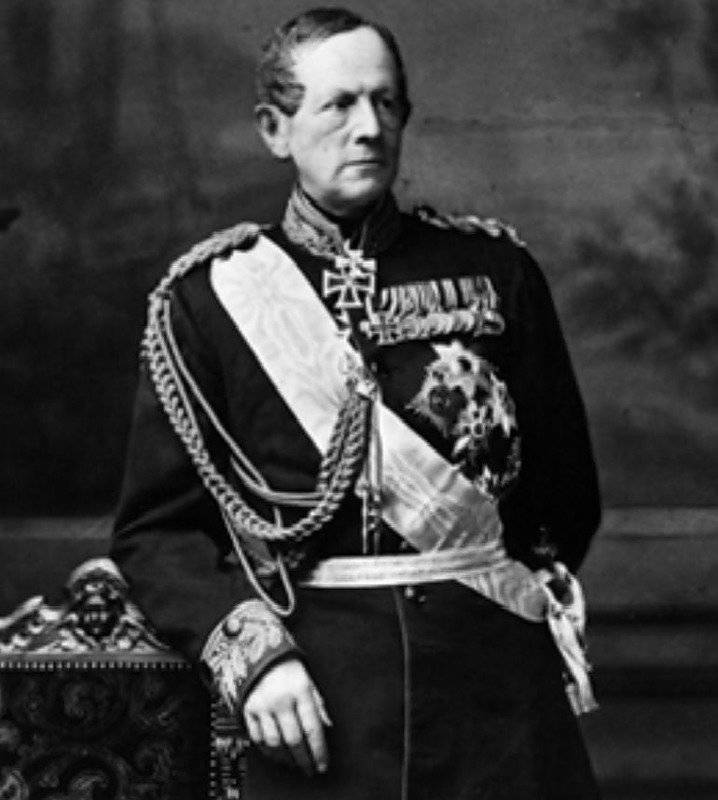
Helmut Karl Bernhard von Moltke (Moltke Senior), German Field Marshal-General (1871), Russian Field Marshal-General (1872), military theorist. Along with Bismarck and Roon is considered one of the founders of the German Empire.
In the Balkans, Berlin concluded a defensive alliance with Romania. In 1885, Germany did not hinder the reunification of Bulgaria, did not mind England, because now Bulgaria did not fall under the influence of Russia. Turks forced to accept the loss. The Serbs, pushed by Vienna, opposed the unification of Bulgaria, but lost the war (the Serbian-Bulgarian war 1885-1886). After this defeat, the Serbs became enemies of the Bulgarians.
On the throne of Bulgaria, the Westerners erected their henchman Ferdinand I (from the German Saxe-Coburg-Gothic dynasty). With the support of Berlin, Bulgaria began to pursue a policy aimed at achieving the hegemony of the Bulgarians in the Balkans. That is why Bulgaria, a country that gained independence thanks to Russia, fought on the German side in the First World War.
Petersburg responded to Berlin by imposing a higher tax on foreign property owners, which hit Prussian nobles who owned estates in Russia. Bismarck got angry and made a serious mistake. He banned the sale of Russian securities on the Berlin and Bremen currency exchanges. And Russia at that time was in need of investment for the development of industry. Petersburg turned to France. Paris immediately met: firstly, it was profitable from a financial point of view; secondly, relations were established with Russia, with which tensions existed after 1878. After all, then France was practically surrounded by enemies: unfriendly Germany, Austria-Hungary and Italy, the British, with whom the war over the colonies almost began.
Bismarck realized that he had gone too far, because Russia is not Germany’s main rival, its main enemy is the United Kingdom, which hinders the further development of the German nation. He invited the Russian ambassador, Pavel Andreevich Shuvalov, and read him the treaty of Germany with Austria-Hungary. After offered to conclude a secret treaty on peace and friendship with Russia.
In Petersburg, they agreed: 6 (18) June 1887 was signed by the German Chancellor Bismarck and the Russian Ambassador P.A. Shuvalov in Berlin, the so-called. reinsurance agreement. Under the terms of the agreement, both powers were to maintain neutrality in the war of one country with any third great power, except when the German Empire attacked France or the Russian Empire against Austria-Hungary. A special protocol was attached to the Russian-German treaty; according to it, Berlin pledged to provide diplomatic assistance to St. Petersburg if the Russian emperor found it necessary to “take over the defense of the entrance to the Black Sea” in order to “preserve the key to his empire”.
Unfortunately, the alliance of Germany and Russia that began to take shape did not take place.: In the 1888, the German Emperor Wilhelm died, his successor Frederick III was seriously ill, so the rule was only a few months, the throne was occupied by Wilhelm II. In 1890, he sent Bismarck, an opponent of the war with Russia, into retirement. The new Chancellor, General Leo von Caprivi, broke the alliance with Russia and began a rapprochement with England.
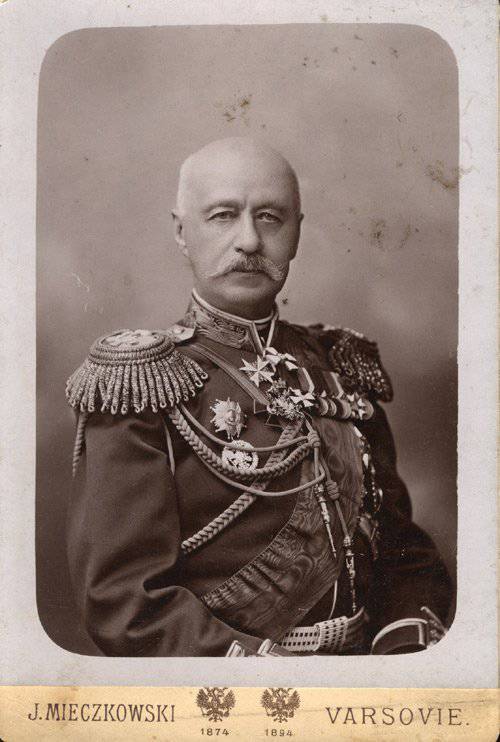
Count Pavel Andreevich Shuvalov (1830 — 1908) is a Russian statesman and military leader, diplomat.
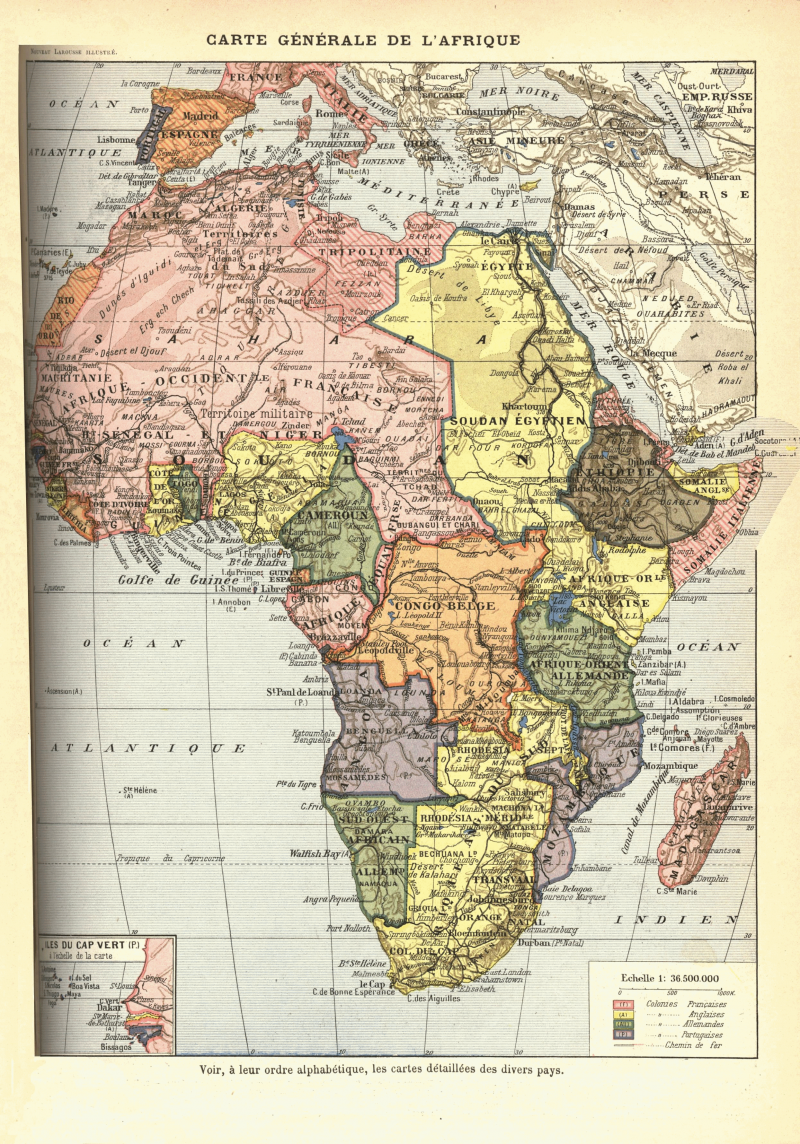
Information